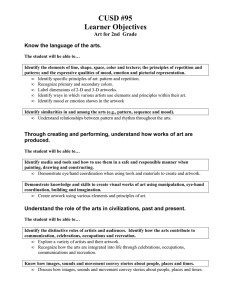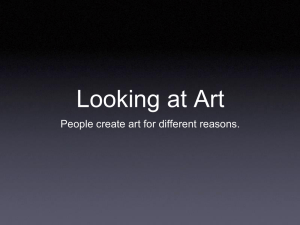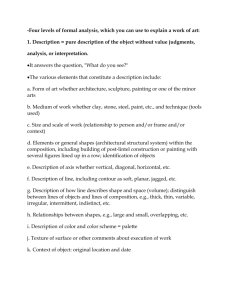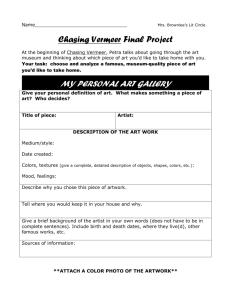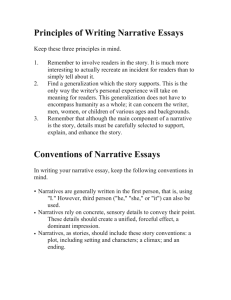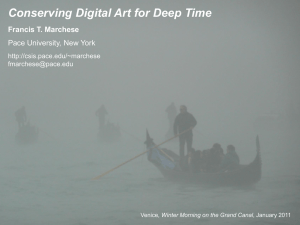Art That Tells a Story - Educational Uses of Digital Storytelling
advertisement
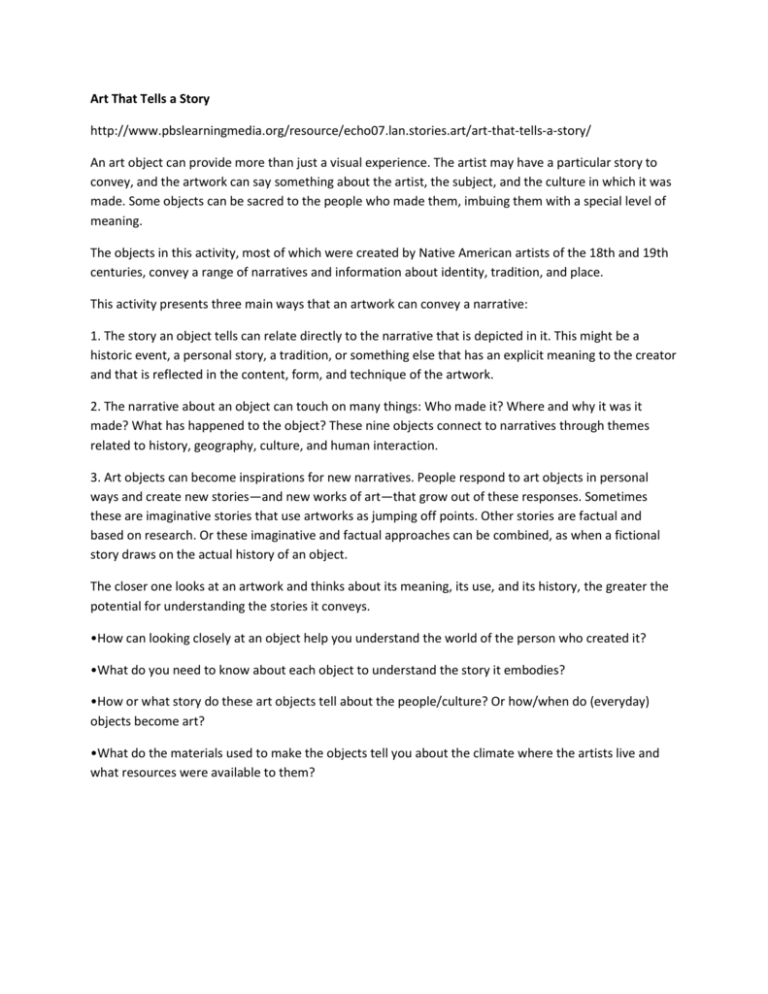
Art That Tells a Story http://www.pbslearningmedia.org/resource/echo07.lan.stories.art/art-that-tells-a-story/ An art object can provide more than just a visual experience. The artist may have a particular story to convey, and the artwork can say something about the artist, the subject, and the culture in which it was made. Some objects can be sacred to the people who made them, imbuing them with a special level of meaning. The objects in this activity, most of which were created by Native American artists of the 18th and 19th centuries, convey a range of narratives and information about identity, tradition, and place. This activity presents three main ways that an artwork can convey a narrative: 1. The story an object tells can relate directly to the narrative that is depicted in it. This might be a historic event, a personal story, a tradition, or something else that has an explicit meaning to the creator and that is reflected in the content, form, and technique of the artwork. 2. The narrative about an object can touch on many things: Who made it? Where and why it was it made? What has happened to the object? These nine objects connect to narratives through themes related to history, geography, culture, and human interaction. 3. Art objects can become inspirations for new narratives. People respond to art objects in personal ways and create new stories—and new works of art—that grow out of these responses. Sometimes these are imaginative stories that use artworks as jumping off points. Other stories are factual and based on research. Or these imaginative and factual approaches can be combined, as when a fictional story draws on the actual history of an object. The closer one looks at an artwork and thinks about its meaning, its use, and its history, the greater the potential for understanding the stories it conveys. •How can looking closely at an object help you understand the world of the person who created it? •What do you need to know about each object to understand the story it embodies? •How or what story do these art objects tell about the people/culture? Or how/when do (everyday) objects become art? •What do the materials used to make the objects tell you about the climate where the artists live and what resources were available to them?
